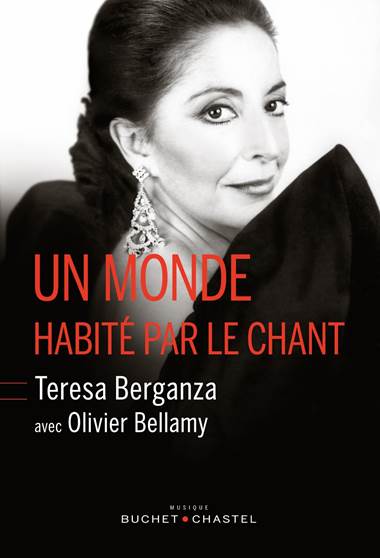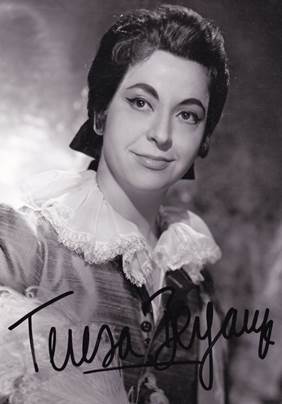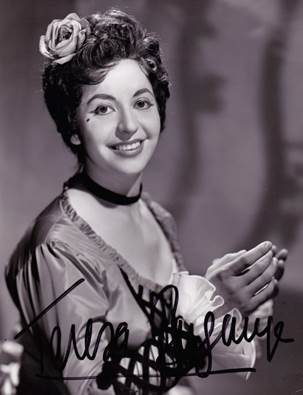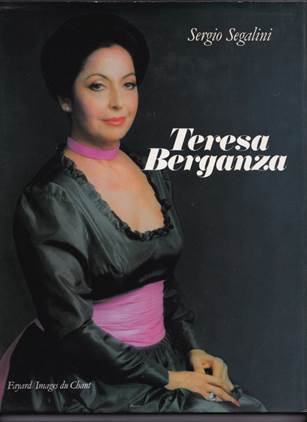
UN MONDE HABITE PAR LE CHANT
TERESA BERGANZA (avec Olivier Bellamy)

206 pp Buchet Chastel April 2013 , Eur 20
ISBN 978-2-283-02646-5
Click here to listen to one of the earliest interviews with the mezzo.
This book is the result of a series of conversations held during the month of August 2012 between the artist and Mr Bellamy a French writer on classical music who had already written the biography of Martha Argerich. It consists of 19 chapters dealing with the artistic and personal life of the Spanish mezzo. The reading of it provoked a kaleidoscope of reactions to this reader ranging from an unbelievable, funny, painful, moving, hard, honest to an occasional over-the-top narrative. Teresa Berganza is very outspoken about everything that involved her life and career which also makes herself very vulnerable, a fact she realizes only too well. Alternatively she comes over as a courageous saint or as the toughest woman on earth.
Opponents of the Eurotrash “movement” will delight in Berganza’s tirade on this trend much the same as the one Ileana Cotrubas expressed years ago in her memoirs. There’s also a tendency typical of divas looking back on their career of mixing up facts and failing memory, Maria Callas is a case in point. Berganza states for instance that Callas invited her to attend Elena Souliotis’s Norma at the Met but that was in fact at Carnegie Hall. She also messes up the time line of the Callas-Tebaldi reconciliation telling the reader that Callas at that moment hadn’t yet been invited to the Met. Errors which should have been easily corrected by a proofreader or the interviewer who obviously lacked the necessary factual knowledge.

 (photos Charles Mintzer collection)
(photos Charles Mintzer collection)
Nevertheless the book is great fun but also sad to read as Berganza didn’t always have an easy life due to misjudgments and personal drawbacks in her life. Her two marriages were failures and the dominance of Spanish Catholicism left a serious mark on her development as a person and her life.
She comes across as a strong-headed often complex woman not shy of a good dose of self-agrandizement : La Scala asking her in 1958 to succeed Callas in Traviata in the Visconti production, Janine Reiss exclaiming “a second Callas!” and Riccardo Muti calling her the greatest mezzo in history are but a few examples.
But there’s also a great amount of fun, modesty and self-knowledge in the book. She admits her German wasn’t good enough to tackle the German repertoire, she openly speaks about her disastrous Charlotte at Covent Garden, while she was a student she was dished by Schwarzkopf “you won’t make a career” and Boris Christoff had a go at her in the streets of London. The book is seasoned with such funny and not so funny anecdotes and makes it hard to put down.
An additional reason to purchase the book is that it has a complete discography and chronology, included are 16 photographs yet an index is missing.
Rudi van den Bulck
The first book on Berganza was mainly a photo book
 <
<